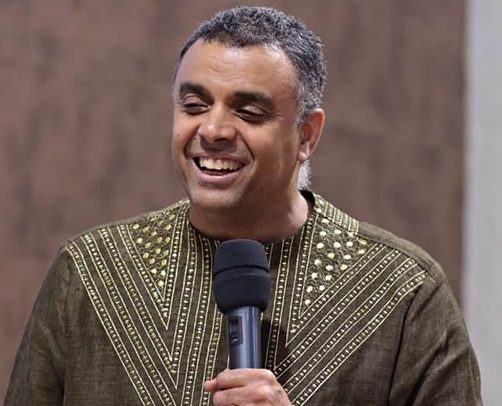
By Isaac DWIMOH-OPOKU
About three weeks ago, Ghana lost one of its most celebrated highlife musicians, Charles Kwadwo Fosu, known to millions as Daddy Lumba.
Tributes have poured in, and his songs have dominated the airwaves as fans reflect on his remarkable career and cultural impact. Among his vast catalogue, one track stands out for its profound life and leadership lessons: S? Emere No Beso A (when it’s about time).

The song is a heartfelt reminder that no matter our influence or position today, a day will come when our leadership must pass to others. While Lumba’s words were deeply personal, they carry timeless lessons for entrepreneurs, family business owners and corporate leaders about the importance of succession planning.
Lesson 1: Accept that the ‘time will come’
In S? Emere No Beso A, Lumba acknowledges the inevitability of change and mortality. For business leaders, the parallel is clear: leadership transition is not a matter of if, but when. Retirement, illness, market disruptions or unforeseen events can force sudden change. Denying this reality delays preparation and leaves organisations exposed.
Lesson 2: Prepare the next generation early
Lumba promises in the song to do everything possible so his “children” will not suffer. This mirrors the responsibility leaders have to groom capable successors. Effective succession is not about last-minute handovers; it is about years of mentorship, structured delegation and gradually preparing the next line of leadership.
Lesson 3: Pass on values, not just skills
A true legacy is not only about passing down assets or job titles. Lumba’s lyrics reflect a father’s desire to leave behind love, principles and a protective foundation. In business, successful succession means ensuring the organisation’s core values, ethics and vision are clearly embedded in the next generation of leaders.
Lesson 4: Build structures that outlive you
In one of the most memorable metaphors of the song, Lumba sings:
“Paapa se bor?de? nim s? woreb?y? bi ak? o. Nti na ne mmrante mmer? mu, ?yaa na ?de ne mma asisi ne nky?n, s? nea ?b?y? a, n’ase nhye, s? nea ?b?y? a, ne din nso nyera o.”
Translation: Dad said the plantain knows it will one day be cut down. So in its youthful days, it grows suckers by its side to ensure its root doesn’t die and its name doesn’t disappear.
For leaders, this is a powerful illustration of proactive succession. You must grow “suckers” — people and systems — while you are still active, so when your own season ends, the organisation’s root remains strong and your legacy intact. This means investing in leadership pipelines, codifying operational processes and building governance structures that can stand without you.
Lesson 5: Think beyond the immediate family
While Lumba’s concern in the song was for his biological children, leaders must remember their broader “family” — employees, customers, investors and communities. A succession plan should secure the trust and continuity of all stakeholders, not just close allies or relatives.
Why this matters now
Research by PwC shows that globally, only about 30 percent of family businesses survive into the second generation, and just 12 percent – 15 percent make it to the third. In Ghana, we have seen once-dominant businesses fade because leadership change was either rushed, contested or poorly planned. Conversely, well-executed transitions, backed by a clear vision and strong structures, keep organisations thriving long after the founder has stepped aside.
The final note
In S? Emere No Beso A, Daddy Lumba asks us to reflect on life’s inevitable transitions. For entrepreneurs and corporate leaders, the message is urgent: succession planning is not an afterthought — it is a strategic imperative. The true measure of leadership is not only in building a thriving enterprise today but in ensuring it flourishes for generations to come. In honouring Lumba’s legacy, let us also commit to leaving our organisations and our life’s work prepared for “when the time will come.”
>>>the writer is a seasoned expert in real estate investment and valuation. He is the Founder and Managing Director of Orient Property Consulting Limited. His firm provides services in property valuation, investment advisory, brokerage, property management and transaction advisory. He is passionate about entrepreneurship and the growth of resilient African businesses, and is committed to mentoring the next generation of real estate professionals.
The post Daddy Lumba’s ‘S? Emere No Beso A’ – Succession planning lessons for entrepreneurs and corporate leaders appeared first on The Business & Financial Times.
Read Full Story






















Facebook
Twitter
Pinterest
Instagram
Google+
YouTube
LinkedIn
RSS